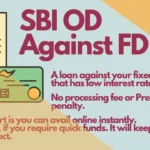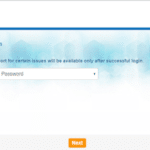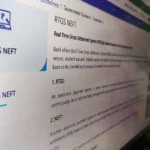Most of you must have heard about recurring deposits.
So, what is a recurring deposit? And how do you open recurring deposit accounts at the bank? Let’s understand the product briefly.
A recurring deposit is a deposit that enables you to save money at regular intervals. Usually, it is a monthly savings plan. You can open this account for 1 to 10 years with decent interest rates, the same as FD rates.
From nationalized banks such as SBI, PNB, Canara Bank, UCO Bank, and Vijaya Bank to private limited banks such as ICICI, HDFC, and also at the post office.
You can open an RD account instantly at the bank of your choice.
Monthly saving plans such as Recurring Deposits and SIPs help to inculcate discipline in saving money for the future. It is also one of the most effective ways of saving money regularly, as it does not require a large amount to save.
It’s easy to execute by setting aside a few amounts from your earnings. Keep on saving these small amounts until eventually they become a large corpus. You can go for a higher amount if you want. This would only increase your savings potential exponentially.
The tenor of deposits ranges from 12 months to 10 years. It is an interest-bearing account, and its interest rate is the same as that of term deposits.
The subscription amount can be as low as Rs 100, and there is no upper limit. That’s the beauty of it. Anyone can start this account at any time with zero risk.
Here are some of the benefits of a recurring deposit scheme:
| Sl No | Benefits of Recurring Deposit |
|---|---|
| 1 | Anyone can open the recurring deposit account. |
| 2 | It gives you financial discipline and helps you create a larger amount over the course of a period of time. |
| 3 | It gives you an interest rate higher than the savings bank rate. |
| 4 | A helping hand for a person who has a regular source of income. It enables monthly savings in an easy way without causing financial strain. |
| 5 | If needed, you can get financial assistance against your recurring deposit account. |
Who Can Open RD Account?
Any individual can open a recurring deposit account at any designated bank or post office. Irrespective of age and gender, anyone can have this deposit account.
For minors, an account should be opened with a guardian. For a minor RD account, the guardian or parents will operate the account until the minor becomes a major.
Where Can You Get It?
The facility is available at all the nationalized banks, private banks, state cooperative banks, and post offices.
If you are unable to visit your branch, you can still avail of the facility through Internet Banking. All the popular banks have online facilities.
You can open online 24/7 throughout the year. The only thing is that there’s a cut-off time to do the transaction. If done beyond working hours, your request will be completed the next working day with an alert that goes to your registered mobile number.
Otherwise, the account number will be generated instantly. You can also set monthly payments as a Standing Instruction mandate. And no documentation is required to open an online RD.
So, when you open a savings or current account, avail yourself of Internet banking. There are lots of things you can do on your own, at your convenience.
For example, SBI has YONO (You only need one) internet banking, where a maximum number of transactions can be done by the user at his convenience.
Is Interest Earned on Recurring Deposit Taxable?
The deposit balance under recurring deposits is taxable under the Income Tax Act, the same as fixed deposits.
If you submit a PAN card, the taxable amount will be 10 % of the interest earned, provided the interest earned amount is above Rs 10000/- otherwise, it is 20% deductible as tax-deductible at source (TDS) as per the Income Tax Act.
What do You need To Submit?
If savings or current accounts are already maintained at the bank branch, then no fresh KYC documents are required. Just filling out the account form is sufficient.
If not, then KYC documents will have to be produced.
Online RD does not require any documentation. Everything is digital.
It’s 100 per cent Liquid
You can close your recurring deposit account anytime and take out your funds whenever you need. So, you can open multiple recurring deposit accounts and as per your needs, you can manage.
How Does It Work?
When you open this account with the help of bank staff, you will get an account passbook where you will get all the details of your account.
You will see the following details on your passbook:
- Your account number,
- Your name and address,
- The tenor of the deposit, monthly deposit amount, maturity date and
- Maturity value.
Every month, you can deposit manually, or you can advise the mandate to debit your savings or current account, to credit the recurring deposit account.
Accordingly, it will keep on depositing every month until your account matures. When it’s about to end, you will get a notification.
When the time comes, you have to advise your bank to close it and credit the whole amount to your main account.
Be aware that your monthly payment is going properly. Otherwise, the bank may impose a penalty on failed SI. That would badly affect the account when it matures.
Best Way To Safe Funds.
If you are unable to save bulk money or you want to save a few amounts every month without taking any risk, then choosing a recurring deposit account makes sense.
The downside of an RD is that since it’s a risk-free account, the return is not as good as compared to investments in stocks and the share market, where risk is pretty high.
However, a recurring deposit account is one of the most popular money-saving plans for people with low-risk appetites, such as low-income groups and senior people. Daily wage earners, people in the unorganized sector, and farmers are all the main investors in RDs.
Not specifically, but in general views, otherwise, it is seen that people of high-income groups spend money on RD for quick accumulation and pooling of funds. For example, when people plan for a vacation, RD is something that would help to pool funds for holiday expenses.
Enjoy saving money and let your money earn money!










I am truly impressed by the details which you have provided regarding Recurring deposits. It is an interesting article for me as well as for others. Thanks for sharing such articles here.
finances for kids
Thanks please do check out others too. I'm impressed with funngro. Great job!